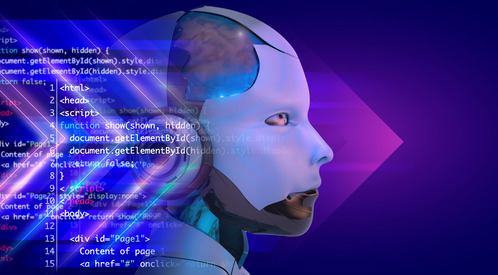New 2D tag with AI authentication to spot counterfeit products Faster & Accurately
3AI January 6, 2021

The authentication process takes under 3.5 minutes to complete, and involves scanning the tags under an electronic microscope to obtain the PUF pattern, which is sent to the AI-driven software for validation.
A new anti-counterfeiting technique uses two dimensional (2D)-material tags along with artificial intelligence (AI)-driven authentication software, and promises to deliver faster, more accurate results even under extreme conditions.
The new method called ‘DeepKey’ was developed by an international team of researchers, led by the National University of Singapore (NUS). The team detailed their work in a study titled ‘Multigenerational Crumpling of 2D Materials for Anti-counterfeiting Patterns with Deep Learning Authentication’, published in the scientific journal Matter.
The 2D-material secure tags have randomly generated ‘Physically Unclonable Function’(PUF) patterns, which can be categorised and validated by a deep learning model.
The authentication process takes under 3.5 minutes to complete, and involves scanning the tags under an electronic microscope to obtain the PUF pattern, which is sent to the AI-driven software for validation.
“With this research, we have tackled several bottlenecks that other techniques encounter,” Wang Xiaonan, Assistant Professor at NUS Faculty of Engineering, said in a release.
“Our 2D-material PUF tags are environmentally stable, easy to read, simple and inexpensive to make. In particular, the adoption of deep learning accelerated the overall authentication significantly, pushing our invention one step further to practical application,” he added.
According to the team, the new technology can be used with valuable products such as jewellery, and electronics as it “reaches nearly 100% validation precision.” Also, the tags can be applied on COVID-19 vaccines for authentication, including the ones that are stored at very low temperatures.
PUF key-based technologies generally offer high encoding capabilities as they can be used to produce numerous dissimilar patterns. Although, it makes the pattern authentication process longer, when performed within a large database.
“We used the deep learning model to pre-categorise the PUF patterns into subgroups, and so the search-and-compare algorithm is conducted in a much smaller database, which shortens the overall authentication time,” Xiaonan explained.
The team is now working on “other readout techniques to further shorten the processing time.” They are also exploring the idea of securing the tags with blockchain, which will enable transparent tracking of the entire supply chain and quality control process, he added.
Picture from freepik.com






